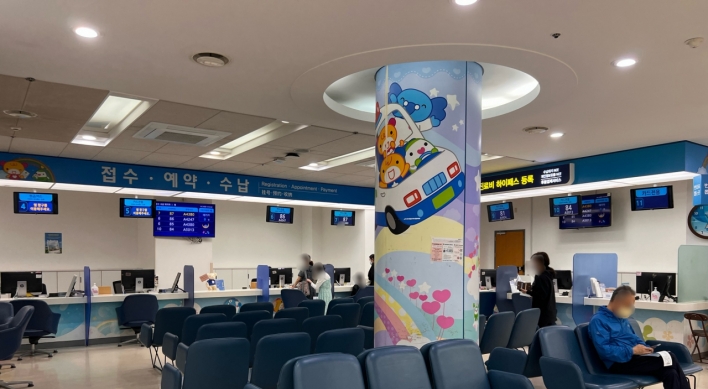[Eye on English] Should English be an official language of Korea?
By Korea HeraldPublished : Feb. 12, 2014 - 20:01

Korea’s zeal for education is often credited with playing a major role in the growth of its economy.
However, there are some serious concerns about its side effects, such as the heavy burden it poses on students and the rising cost of private education.
In particular, Koreans are very much into learning and studying English as a foreign language, and this has led to children spending long hours in after-school lessons. The Seoul government has been trying to slam the brakes on this English fever.
The Education Ministry, for instance, does not allow English to be taught to children under age 8 in public schools, but English-language kindergartens are becoming more popular, especially among affluent parents.
For them, the younger their children can start learning English, the better it is in terms of English proficiency. This is crucial because in their eyes, English is not an optional skill, but essential for securing a desirable job or top academic degree.
That is why when novelist Bok Geo-il proposed the idea of making English as an official language of Korea in 1998, it instantly became the subject of national debate.
Supporters of the idea believe that since English is the lingua franca of the global community, the ability to speak the language is a requirement for Korea to gain a competitive edge.
These advocates also claim that by adopting English as an official language, the government and households can save the time and effort they spend on private education.
According to the latest data, Koreans are subject to nearly 20,000 hours of English education from kindergarten through university.
Despite this investment, their English proficiency is not as high as one would expect: Korea’s proficiency ranked 24th among 60 countries where English is not a native language, according to a report by Education First, an international education company based in Switzerland.
A big part of the reason behind Korea’s lagging performance, the company said, was because the country’s instruction was still focused too much on the so-called traditional approaches of memorization and grammar.
The results would have been very different if the country had made English official at school or work, supporters of the idea claim.
Others have their doubts.
Their main concern is that such policies may end up altering the cultural identity of the country.
Some also claim that teaching a second language before the first is mastered may do more harm than good. Educators, in particular, cite that children may become lacking in both Korean and English.
While the debate over whether to make English official continues, there have been some attempts by companies, universities and legislators at making English an official language.
Notably, the provincial government in Jejudo Island tried to promote English as a second official language as part of an effort to transform the island into an international free trade city, but the plan failed due to stiff resistance.
Meanwhile, experts point out that the nearly decade-old debate over the official use of English may rise again as the country becomes increasingly multicultural.
By the end of 2012, the number of foreigners in Korea reached more than 1.5 million ― 3 percent of the total population. The number of students from ethnic minorities increased from 20,174 in 2008 to nearly 47,000 in 2012.
By Oh Kyu-wook (596story@heraldcorp.com)
-
Articles by Korea Herald




![[Grace Kao] Hybe vs. Ador: Inspiration, imitation and plagiarism](http://res.heraldm.com/phpwas/restmb_idxmake.php?idx=644&simg=/content/image/2024/04/28/20240428050220_0.jpg&u=)

![[Herald Interview] Mom’s Touch seeks to replicate success in Japan](http://res.heraldm.com/phpwas/restmb_idxmake.php?idx=644&simg=/content/image/2024/04/29/20240429050568_0.jpg&u=)


![[News Focus] Lee tells Yoon that he has governed without political dialogue](http://res.heraldm.com/phpwas/restmb_idxmake.php?idx=644&simg=/content/image/2024/04/29/20240429050696_0.jpg&u=20240429210658)









![[Today’s K-pop] Seventeen sets sales record with best-of album](http://res.heraldm.com/phpwas/restmb_idxmake.php?idx=642&simg=/content/image/2024/04/30/20240430050818_0.jpg&u=)